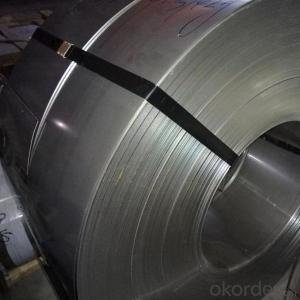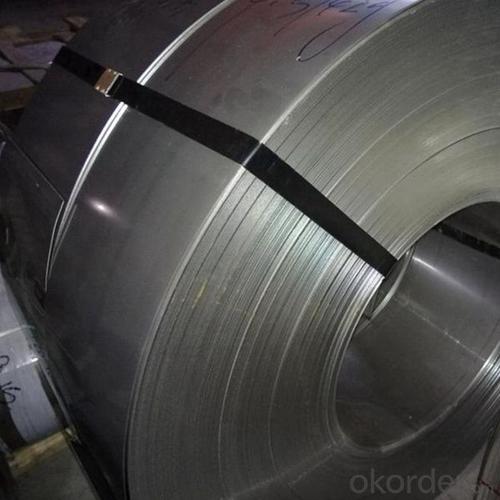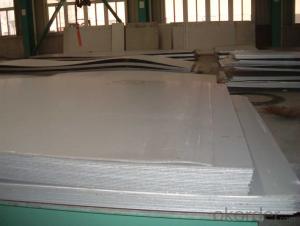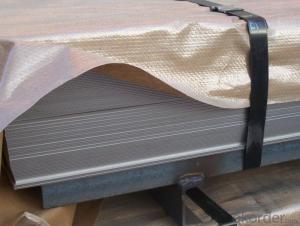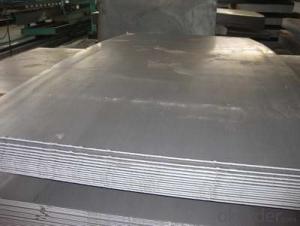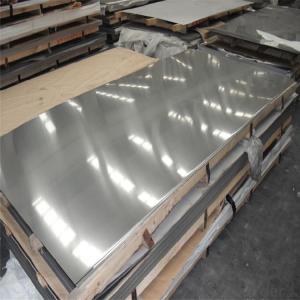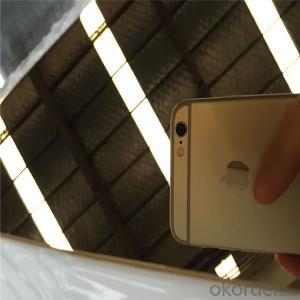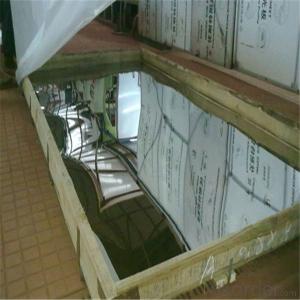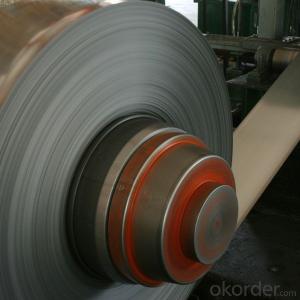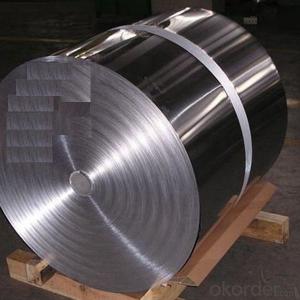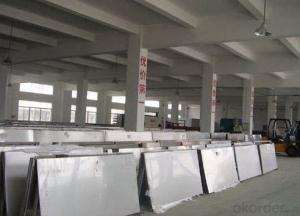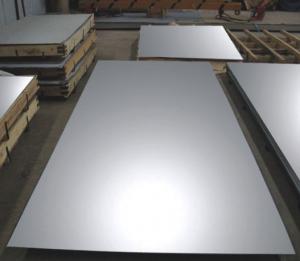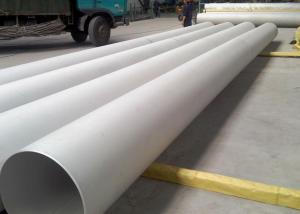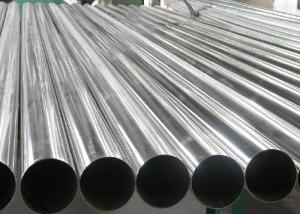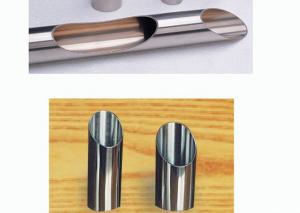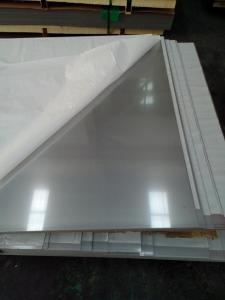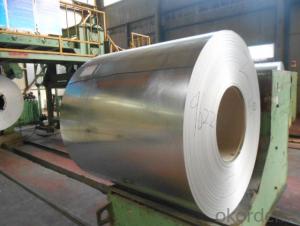Stainless Steel Sheets 2B Finish Grade 201 Stainless Steel Sheets
- Loading Port:
- Shekou
- Payment Terms:
- TT OR LC
- Min Order Qty:
- 25 m.t.
- Supply Capability:
- 20000 m.t./month
OKorder Service Pledge
OKorder Financial Service
You Might Also Like
Specification
Products Description for Stainless Steel Coils/Sheets:
Product | stainless steel coils/plates/sheets | ||
Discharge Port | Any Port, China | ||
Size | Coils | Cold Rolled: | Thickness0.3-8mm,Width:280-2100mm |
Hot Rolled : | Thickness3-14mm,Width:650-2100mm | ||
Plates | Thickness2-80mm,Width:1500-3000mm | ||
Coil Weight | About 20 Tons | ||
Grade | 201,202,304/304L/304H,316/316L/316H,321/H,310S,409/L,430 etc. | ||
Technique | Hot Rolled/Cold Rolled | ||
Finish | 2B, BA, 2D, No1, No2, No4,NO.8,SB etc | ||
Edge | Mill Edge / Slitting Edge | ||
Package | In bundles, or as customer's requirement | ||
Place of Origin | Made in China | ||
MOQ | 20 Tons | ||
Technical notes:
Surface Finish | Definition | Application |
2B | Those finished, after cold rolling, by heat treatment, pickling or other equivalent treatment and lastly by cold rolling to given appropriate luster. | Medical equipment, Food industry, Construction material, Kitchen utensils. |
BA | Those processed with bright heat treatment after cold rolling. | Kitchen utensils, Electric equipment, Building construction. |
NO.3 | Those finished by polishing with No.100 to No.120 abrasives specified in JIS R6001. | Kitchen utensils, Building construction. |
NO.4 | Those finished by polishing with No.150 to No.180 abrasives specified in JIS R6001. | Kitchen utensils, Building construction, Medical equipment. |
HL | Those finished polishing so as to give continuous polishing streaks by using abrasive of suitable grain size. | Building Construction. |
Packaging & Delivery for Stainless Steel Coils/Sheets:
Packaging Detail | Standard export packing or following customer's demand |
Delivery Time | Within 30-40 days after deposit or according to the order quantity |
Detail picture for Stainless Steel Coils/Sheets
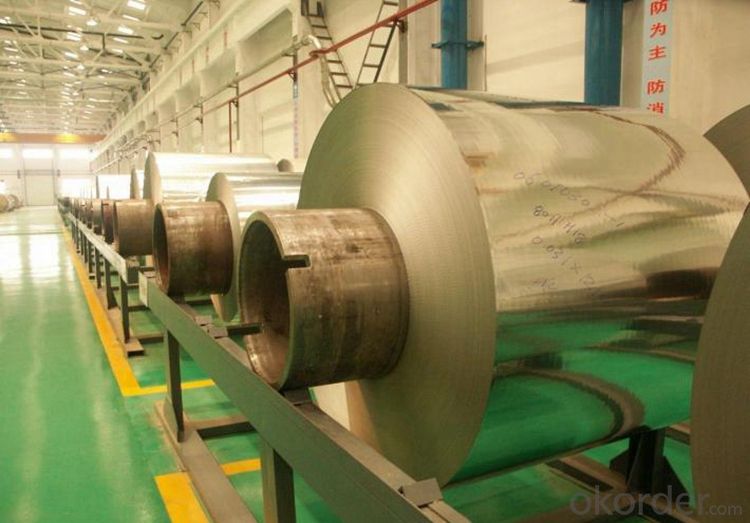
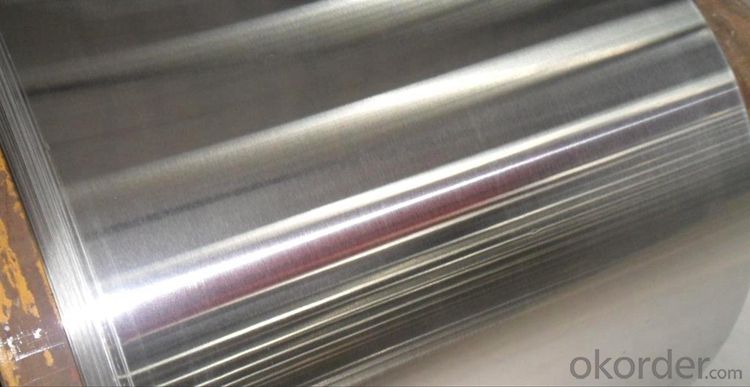
Application for Stainless Steel Coils/Sheets:
Boiler heat exchanger, machinery andpetroleum ,chemical industries, hardware fields,Food industry,construction material,kitchen utensils, building construction, medical equipment,chemical tank, pipe etc
Payment&Delivery for Stainless Steel Coils/Sheets:
Payment Terms | 100% LC at sight,or 30%TT in advance, balance against B/L copy |
Delivery Time | With 30-40 days after deposit |
Price Terms | Ex-Work, FOB, CNF, CFR, CIF,etc |
FAQ for Stainless Steel Coils/Sheets:
Q:What are the advantages of your company ?
A: We have many professionals, technical personnel, more competitive prices and best after-dales service than other stainless steel companies.
Q:Can you arrange the shipment ?
A: Sure we can help you with the shipment. We have forwarders who have cooperated with us for many years.
- Q: What is the coefficient of expansion of stainless steel sheets?
- The coefficient of expansion of stainless steel sheets can vary depending on the specific grade or alloy of stainless steel being used. However, in general, stainless steel has a coefficient of expansion ranging from 10.8 to 16.3 x 10^-6 per degree Celsius. This means that for every degree Celsius increase in temperature, stainless steel sheets will expand by approximately 10.8 to 16.3 millionths of their original length. It is important to note that different grades of stainless steel may have slightly different coefficients of expansion, so it is always recommended to consult the manufacturer or specific material specifications for accurate information.
- Q: Can stainless steel sheets be bent?
- Stainless steel sheets have the capability to be bent. This material, known for its versatility, can be molded into different forms and designs, including bends. The capacity to bend stainless steel sheets relies on their thickness and composition. Generally, thinner sheets are more pliable and easier to bend, whereas thicker sheets might necessitate specialized tools and techniques. It is crucial to bear in mind that the bending procedure could potentially weaken the strength and durability of the stainless steel sheet. Therefore, careful thought should be given to the particular application and requirements before embarking on the bending of stainless steel sheets.
- Q: Can stainless steel sheets be used for sink fabrication?
- Yes, stainless steel sheets can be used for sink fabrication. Stainless steel is a durable and corrosion-resistant material that is commonly used for sinks due to its hygienic properties and ease of cleaning.
- Q: What are the different types of stainless steel sheet finishes for decorative purposes?
- There are several types of stainless steel sheet finishes commonly used for decorative purposes, including brushed, mirror, embossed, and patterned finishes.
- Q: Can stainless steel sheets be used for backsplashes?
- Yes, stainless steel sheets can be used for backsplashes.
- Q: How do you prevent intergranular corrosion on stainless steel sheets?
- Intergranular corrosion, which causes structural damage and reduced strength, occurs along the grain boundaries of stainless steel. To prevent this corrosion on stainless steel sheets, several steps can be taken: 1. Material Selection: To prevent intergranular corrosion, it is crucial to select the appropriate grade of stainless steel. Grades like 304L or 316L, which have low carbon content, are less susceptible to this type of corrosion due to their reduced sensitivity to sensitization. 2. Heat Treatment: One can heat treat stainless steel sheets to eliminate carbide precipitation, a common cause of intergranular corrosion. This process, known as solution annealing or sensitization heat treatment, involves heating the material to a specific temperature range and rapidly cooling it. This treatment ensures the formation of a consistent and corrosion-resistant microstructure. 3. Passivation: Passivation is a chemical process that removes contaminants and forms a protective oxide layer on the surface of stainless steel sheets. This layer acts as a barrier against corrosion and prevents intergranular attack. Typically, nitric acid or citric acid solutions are used for passivation. 4. Welding Techniques: Proper welding techniques should be employed when welding stainless steel sheets to minimize the risk of intergranular corrosion. This includes using low heat input, preventing excessive heat build-up, and using filler materials with low carbon content to prevent sensitization. 5. Avoiding Contamination: It is essential to protect stainless steel sheets from contamination by other metals, particularly those with higher galvanic potentials. Contact with carbon steel, for instance, can lead to galvanic corrosion and promote intergranular attack. Therefore, it is important to store and fabricate stainless steel sheets separately from other metals. 6. Regular Cleaning and Maintenance: Regularly cleaning and maintaining stainless steel sheets is vital to prevent the accumulation of corrosive substances or contaminants on the surface. Non-abrasive cleaners and proper cleaning methods should be used to avoid scratching the stainless steel, as scratches can create sites for corrosion initiation. By implementing these preventive measures, one can significantly reduce intergranular corrosion, ensuring the durability and performance of stainless steel sheets.
- Q: What are the different types of stainless steel sheet surface coatings available?
- There are several different types of stainless steel sheet surface coatings available, each offering unique properties and benefits. Some of the most common types include: 1. No Coating: Stainless steel sheets without any coating have a natural, smooth surface finish. This type is often used in applications where corrosion resistance is a primary concern. 2. Brushed Finish: This coating creates a distinctive brushed pattern on the stainless steel surface. It provides a decorative appearance while also hiding scratches and fingerprints. 3. Mirror Finish: A mirror coating gives stainless steel sheets a highly reflective surface, similar to a mirror. This type is popular in architectural and decorative applications. 4. Satin Finish: Satin coatings offer a smooth, matte appearance with a low reflectivity. They are frequently used in high-end appliances and architectural elements. 5. Bead Blasted Finish: This coating creates a uniform, textured surface by bombarding the stainless steel with small glass beads. It provides a unique visual effect and can hide surface imperfections. 6. Patterned Finish: Patterned coatings involve embossing or etching designs onto the stainless steel surface. They can create a wide range of patterns and textures, adding aesthetic appeal to various applications. 7. Colored Coatings: Stainless steel sheets can be coated with various colors using processes such as powder coating or electroplating. This allows for customization and adds a decorative element to the material. It is important to consider the specific requirements of your application when selecting a stainless steel sheet surface coating. Factors such as corrosion resistance, durability, aesthetics, and functionality should all be taken into account to ensure the best choice for your needs.
- Q: What type of welding rod is used for 304 stainless steel plate welding?
- A102 is Cr19Ni10 stainless steel electrode titanium calcium type coating, corrosion resistance of the deposited metal has good mechanical properties and resistance to intergranular, has excellent welding performance and anti porosity property, anti cracking, red medicine Pinai. A107 is a Cr19Ni10 stainless steel electrode with alkaline coating. The deposited metal has good mechanical properties and intergranular corrosion resistance. Therefore, they are aimed at 304 development of welding electrodes.
- Q: Can stainless steel sheets be used for food packaging equipment?
- Yes, stainless steel sheets can be used for food packaging equipment. Stainless steel is a popular material choice for food processing and packaging equipment due to its durability, corrosion resistance, and hygienic properties. It is non-reactive, which means it does not interact with the food, ensuring that the quality and taste of the food remain intact. Stainless steel sheets can be easily cleaned and sanitized, making them suitable for use in food packaging equipment where cleanliness and hygiene are of utmost importance. Additionally, stainless steel has a smooth surface, which makes it easy to handle and prevents food particles from sticking to the equipment. Overall, stainless steel sheets are a reliable and safe option for food packaging equipment.
- Q: Are stainless steel sheets resistant to high-pressure environments?
- Stainless steel sheets exhibit remarkable resistance to high-pressure environments. This material boasts robustness and durability, enabling it to endure the immense force exerted by diverse industrial operations, including hydraulic systems, chemical processing plants, and oil and gas pipelines. Its outstanding tensile strength and capacity to maintain structural integrity even in the face of extreme pressure make it highly esteemed. Moreover, stainless steel also possesses corrosion resistance, further bolstering its suitability for high-pressure settings where exposure to moisture or chemicals is prevalent. Consequently, stainless steel sheets are extensively employed in industries that demand materials capable of withstanding high-pressure circumstances due to their exceptional strength and resistance attributes.
Send your message to us
Stainless Steel Sheets 2B Finish Grade 201 Stainless Steel Sheets
- Loading Port:
- Shekou
- Payment Terms:
- TT OR LC
- Min Order Qty:
- 25 m.t.
- Supply Capability:
- 20000 m.t./month
OKorder Service Pledge
OKorder Financial Service
Similar products
Hot products
Hot Searches
Related keywords
